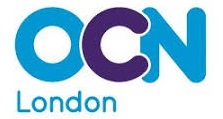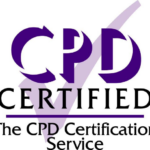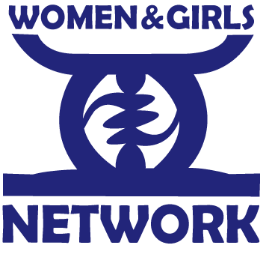Many of our courses and one day trainings are accredited with OCN-London or The CPD Certification Service. Including our induction training for WGN team members, which is OCN London accredited.
OCN London offers a national qualification where learner achievement is recognised through credit based units and qualifications. OCN London is regulated by Ofqual and the Quality Assurance Agency for Higher Education (QAA).
The CPD Service is the largest and most recognised CPD training accreditation service in the UK, with over 20 years experience supporting accredited CPD providers from across all industry sectors. The CPD Certification Service is the leading independent CPD accreditation institution providing the highest quality accredited training and events suitable for the Continuing Professional Development policies of professional bodies.


If you would like to talk to us about our accredited courses, please complete our training enquiry form below and email it to [email protected].
About our accredited training courses:
The Survivors Gateway comprises of the main sexual violence services in London including the four Rape Crisis Centres, SurvivorsUK, Galop, Respond, and The Havens. This partnership project has delivered a pan-London triage service for sexual violence services called ‘The Gateway’ (run by the Women and Girls Network) and Independent Sexual Violence Advocates and Caseworkers based in individual agencies.
This combined expertise has propelled the partnership to develop and launch a new Advanced ISVA Training Program, to enhance practitioner knowledge and skills and continued professional development of ISVAs and other sexual violence advocates across London. The course is intended to offer a unique exploration of key aspects and issues that affect sexual violence advocacy work. Fundamentally it explores the role of sexual violence advocacy from an Intersectional, Trauma Informed and Social Justice oriented lens, to understand the best outcomes for survivors, on a personal level, as well as how to initiate systemic change within systems that prevent survivors from accessing justice, healing, and recovery. It comprises of theoretical teachings on a complex range of issues that are being navigated by Survivors, and crucially how this applies within practice-based setting. Participants will be encouraged to share their own personal experience as practicing advocates to explore the potential of new emerging and co-created solutions to current practice challenges.
For more details please contact [email protected]
What you will learn:
1. Increase their understanding on what it means to take a relational and holistic approach to ISVA work.
2. Increase their knowledge of interventions, models, and theory on trauma and how to apply these within an advocacy role.
3. Be able to apply an intersectional lens within a sexual violence advocacy role.
4. Have an increased understanding of more traditional models of mental health and diagnosis, its critique, and alternative applied models (e.g., Power Threat, meaning Framework) for working with
sexual violence survivors.
5. Increase their knowledge of theoretical and clinical presentations for those who are multiply marginalised and work to towards promoting recovery.
6. Deepen their knowledge of suicidal behaviour, ideation, and the management within advocacy.
7. Increase their understanding of the different models of Justice available for Sexual Violence Survivors.
8. Explore the importance for practitioners to develop a strong practice for Worker, Ethics, Well-Being, and Justice.
Please note this course is in the process of becoming accredited
Children and young people are increasingly being coerced into sexually exploitative situations. They are constantly under pressure to become involved in sexual activity through peer pressure, gang involvement and internet grooming. The aim of the training is to increase participants awareness of sexual exploitation as a form of sexual abuse, enabling them to identify vulnerability and ricks indicators to better enhance practitioners ability to safeguard young people at risk of CSE.
What you will learn:
- Define child sexual exploitation
- Explore own and society’s attitudes, beliefs and values to regarding young women, sexual activity and sexual exploitation whilst challenging myths and stereotypes
- Increase awareness of what makes young women/people vulnerable to sexual exploitation
- Increase awareness of the global impact of trauma as a consequences of CSE from a neuroscience perspective
- Increase awareness and knowledge of relevant clinical conceptualisations that can manifest as a consequence of HP
- Be aware of the law, guidance, policies and procedures relating to sexual exploitation and young women/people
- Identify the impact of the work on self as practitioner and explore self care strategies.

This accredited programme provides a comprehensive introduction to the issues involved in working with women recovering from experiences of gendered violence. It is informed by feminist principles and promotes a holistic range of therapeutic techniques and traditional woman-centred ways of healing that seeks inspiration and expression from diverse global cultures. The programme also incorporates the latest advancements in neuroscience to aid understanding of the physiological responses of trauma and the long term impact on women’s’ lives.
This training programme consists of 10 one-day sessions and comprises a combination of lectures, exercises, role-plays and multimedia. The interactive nature of the course, provides participants with the opportunity to participate in and contribute to the training. As well, participants have the opportunity to learn from each other and the facilitators.
What you will learn:
- Understand the context of counselling and how it differs from other helping strategies
- Understand the essential elements for creating a safe environment for counselling to take place
- Be able to participate in learning activities that involve counselling skills practice and personal reflection
- Use theoretical models to underpin clinical practice.
- Understand the need for professional and ethical codes of good clinical practice.
- Understand effective counselling strategies in working with difference

The course aims to provide delegates with a better understanding of suicidality and to become better prepared and equipped to help survivors experiencing suicidal thoughts and crisis.
Learning Outcomes:
- Increase awareness of suicidal myths & facts
- Increase awareness of suicidality and links with distress, and self-injurious behavior
- Increase awareness of the Integrated Motivational Volitional model of suicide and neurobiological responses
- Increase awareness of the suicidal journey – Mind / body separation, suicidal imagery, hopelessness
- Increase awareness of the risk factors & warning signs
- Increase awareness of the narrative approach to assessment
- Understand the collaborative approach to suicidal management
- Understand safeguarding considerations and action
- Understand the importance of self-preservation and promoting professional resilience working with suicidal survivors

This free two day accredited course explores the theoretical and clinical presentations of women and girls who have been multiply marginalised accessing services who have experienced gendered violence. The course will define complex needs, introducing Developmental Trauma and Complex Traumatic Stress alongside common clinical presentations such as depression, self-harming behaviour, suicidal ideation and activation. Understanding of trauma reactions and associated neurobiological responses will also be explored. The course will introduce strengths and evidence based interventions working holistically to support recovery, emphasising women’s capacity for resilience and internal resources to promote sustainable healing.
What you will learn:
- Understand the definition of complex needs.
- Understand the underlying conditions for women and girls with complex needs.
- Understand how to engage with women and girls with complex needs using a gender responsive trauma focused approach
- Understand the strength based approach for responding to women and girls who have complex needs.
- Understand how to stabilise women and girls presenting with complex needs
- Understand how to facilitate recovery of women and girls with complex needs

This course will use theoretical constructs from gender analysis perspectives on sexual violence to examine prevalence, explore definitions, and challenge popularist attitudes towards sexual violence, from a trauma focused approach. This will involve an exploration of the neurobiology of trauma responses to contextualise the range and depth of trauma symptomology and the ensuing legacy of sexual violence. The course will also introduce strength and evidence based approaches to working holistically with women who have experienced sexual violence, from a culturally relevant perspective. The programme will also include specialist information from Rights of Women on the legal frameworks in relation to sexual violence.
What you will learn:
- Understand the scope of a range of different form of sexual violence that women and girls experience
- Understand the key issues of gendered violence that allow myths and attitudes related to sexual violence to be maintained.
- Understand the different ways that sexual violence impacts on women and girls
- Understand how to respond to disclosures of sexual violence
- Understand how to implement effective strategies to engage women and young girls affected by sexual violence

This one day course aims to increase participant’s awareness and knowledge of harmful practices, enabling them to identify vulnerability and risks factors in order to enhance practitioner’s ability to recognize to better safeguard and protect young women at risk of harmful practices.
Learning Outcomes:
- Increase awareness and knowledge of the definitions and some of the acts that constitutes harmful practices (HP).
- Increase awareness of some of the indicators of harmful practices
- Increase awareness and knowledge of the global and traumatic impact of HP on women and girls well-being.
- Increase awareness of the trauma cycle from a neuroscience perspective
- Increase awareness and knowledge of relevant clinical conceptualizations and presentations that can manifest as a consequence of HP.
- Identify best practice and issues to consider when working with women and girls in relation to HP
- Identify impact of work on self as practitioner and develop self-care strategies

To enable staff and volunteers to develop awareness and understanding of safeguarding issues regarding children, and young people and relate these to their roles and responsibilities within WGN to better safeguard children young people
Learning Objectives:
- Identify what is meant by safeguarding and child abuse
- Name the categories of child abuse
- Recognise the signs and indicators of each
- Identify the relevant legislation and guidance that provides the framework for safeguarding children, young people.
- Identify blocks to why children, don’t want to disclose concerns.
- State how to respond to concerns about the safety and welfare of a child or young person.


